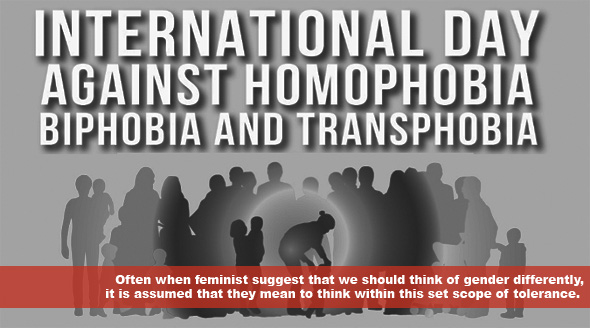We have not done enough for queer persons at South African universities.
Studies and surveys carried out at universities in the United States and Australia show that queer persons suffer higher rates of sexual violence and harassment than non-queer persons. These surveys were carried out in jurisdictions with progressive laws and legal systems, much like those of South Africa. They are evidence that tough laws and policies provide good structures, and that the living and social realities of queer persons in our universities need to catch up. The harassment of queer persons is an issue too pressing to be ignored if the sanctity of learning spaces is to be guaranteed. Queer persons are as much a concern as other members of the staff and student community in planning both the present and the future training of foot soldiers through awareness raising and education.
A few months ago, my debut novel Fimí sílẹ̀ forever was released. Among other things, it addresses the dire state of the human rights of queer persons in Nigeria. On the understanding that the human rights of queer persons are a global concern, a few conversations have been held on campus against the backdrop of the book. In these conversations, there are two recurring questions: 'How African is queerness?' and 'Can a queer person be a person of faith as well?' These questions are proof that the humanity of queer persons is still being questioned. This doubt fuels the vulnerability of queer persons. This vulnerability results in queer persons making up a substantial portion of those who are most susceptible to unreported and unaddressed violations and harassment on campus. This fact challenges the presumption that Universities offer a learning and working space that is safe and inclusive for all.
There are many queer persons among staff and students, and the widespread stigmatisation of queerness heightens our vulnerability. Some of us come from homes where we must hide our queer identities or face the risk of being thrown out or disowned, or both. Some assailants know and exploit this. Sometimes, our assailants may be someone in a position of authority over us. At other times, our assailants may be persons of equal rank or subordinates. Lesbians and gender non-conforming students are particularly at risk. On a few occasions, they have admitted publicly to carrying weapons for their protection. The vulnerability of queer persons is heightened by the fact that we use denial, withdrawal and silence as coping mechanisms. Perhaps we believe that the continuity and completion of our involvement at the institution depends on this silence. Often, we have little or no knowledge of the structures available to address harassment. Sometimes, even when we know where to go, we lack sufficient understanding and/or faith in the structures to make the best use of them.
A few departments, including the Centre for Human Rights at the University of Pretoria (UP), as well as staff and students, have come together to create the UP Queer Space Collective (QSC). This is an informal group with the vision to make UP safer and more inclusive of queer identities, using creative writing and expression.
The QSC has requested a designated physical space for queer literature at the Merensky 2 Library. The Department of Library Services is also now working on a queer lib-guide (an online repository on the library website of links to online and physical locations of queer literature). A physical reading space for queer literature is already up and running at the Centre for Sexualities, AIDS and Gender. The main purpose of this is to sustain a space at UP where being queer is okay and protected.
Awareness-raising is important because, as in the wider community, there are many people at UP taking deliberate advantage of the vulnerability of queer persons. These are people who are ignorant of queer persons and queer identity, and as such inadvertently abuse them, or people who, although queer themselves, 'cash in' on other queer persons' vulnerability for several reasons. Awareness-raising at the University is particularly important because UP plays a major role in social transformations. Every year, UP receives and graduates South African and international students in various disciplines. This means that UP has a great opportunity to contribute to training foot soldiers for change on the continent and in the world. As such, it is important that we teach ourselves, and our friends and colleagues, to think of queerness and harassment of queer persons differently. We can do this by reforming minds and spaces, and punishing perpetrators to deter others.
The QSC has the potential to be a one-stop shop for all queer-friendly UP persons and institutions. If effectively supported and sustained, the QSC can continue to contribute to the sanctity of Queer UP, especially through the de-stigmatisation and protection of queer persons.
(originally published on: https://www.up.ac.za/en/alumni/news/post_2548614-queer-spaces-will-change-things-at-up)




